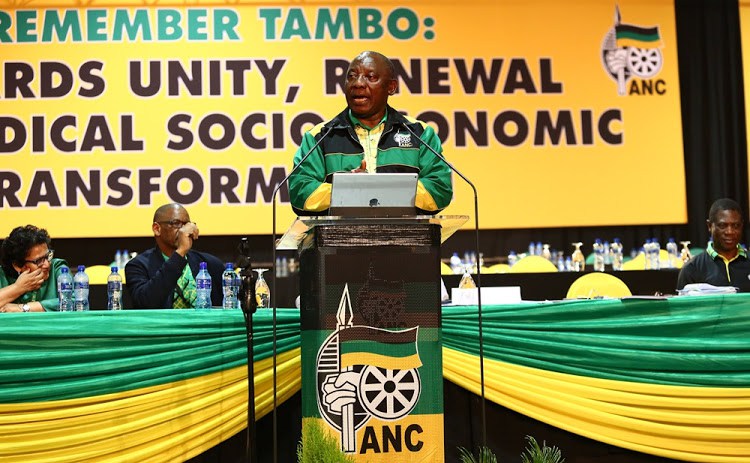The 54th ANC elective conference held on 16 to 20 December 2017 at Nasrec, Johannesburg, shocked many when it resolved to amend the constitution to enable the government to expropriate land without compensation. Supporters of the newly elected ANC President Cyril Ramaphosa voiced their displeasure at what they termed ‘populism’. It was left to the new president to cool the markets. In his closing address to the conference he said the policy will be carried out in a way that won’t undermine the economy, agricultural production and food security. The resolution however continues to be controversial and will be one of the challenges for Ramaphosa as he tries to reverse resolutions that threaten to scare big business and the rating agencies. These include free education, implementation of the National Health Insurance in the face of resistance from big business, and the call for accelerating “radical economic transformation” from within and outside the ANC.
According to the statement issued by the Pan Africanist Congress (PAC), it welcomed the proposal of land expropriation without compensation by the ANC. Business Unity South Africa (BUSA) said that the expropriation of land without compensation sends a wrong message to investors and rating agencies. After Ramaphosa’s speech AgriSA supported Ramaphosa and said that expropriation without compensation should be implemented in a manner that does not threaten food security or damage the economy. It however remains concerningly unclear how this will be achieved. Implementation of this resolution will require amending section 25 of the Constitution. The procedure for such an amendment is set out in section 74 of the Constitution and requires a two-thirds majority. This means that the ANC will have to get the support of parties like the EFF to pass the amendment. The EFF had already offered its votes to amend the constitution but this was rejected by the ANC.
The resolutions on land expropriation without compensation were part of the battle between Ramaphosa and Nkosazana Dlamini-Zuma for leadership of the ANC. Ramaphosa shied away from any policies that could ensettle the capital markets, and it now remains to be seen if he will use his new-found power to delay and finally kill the resolutions that he avoided steadfastly during his campaign, even when these policies were long-standing ANC policy.


